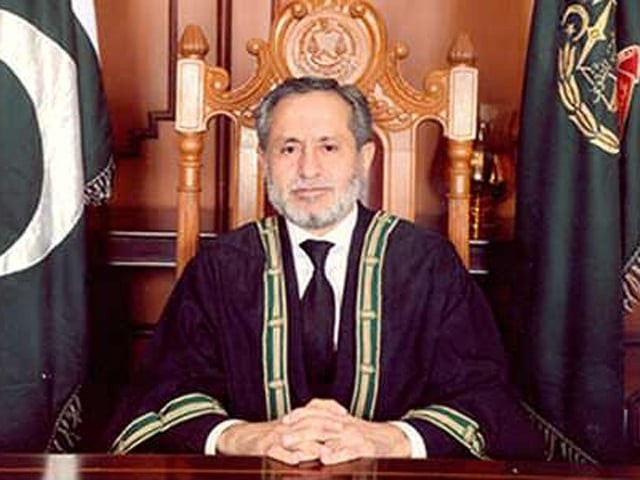Islamabad:
Meetings of the sub-commies of the Pakistan Judicial Commission (JCP) led by judge Jamal Khan Mandokhail were provided for August 21 to prepare rules for the annual evaluation of the judicial performance of the judges of the High Court, as well as criteria for selecting judges for the constitutional benches.
The chief judge of Pakistan (CJP) Yahya Afridi had previously formed two committees led by judge Mandokhail. The other members include the Pakistan Attorney General (AGP) Mansoor Awan, Senator Farooq H Naek (Treasury benches), Senator Ali Zafar (opposition benches) and the representative of Pakistan Bar Council Ahsan Bhoon.
The first committee was to write rules proposed to establish effective standards for the annual assessment of the yield of high court judges under article 175A (20) of the Constitution, inserted by the 26th constitutional amendment.
The CJP had formed this committee at the JCP meeting on June 19.
Earlier, the CJP Afridi also trained a committee including the same members to write an objective criterion to select judges for constitutional benches.
A notification issued in this regard declared that, in the light of the president’s decisions during three JCP meetings held on February 28, the committee was responsible for writing objective criteria for the appointment of judges under the clause (4) of article 175a of the constitution and the selection of judges for constitutional benches under the 191-A and 202-A.
Interestingly, the JCP had decided to form a rules committee in January, and the CJP Yahya Afridi published its notification on March 4. However, the committee has not kept any meeting in the past five months.
Legal experts have since asked why the committee was not constituted immediately after the adoption of the 26th amendment. Since its promulgation, the judges of the Supreme Court and the constitutional benches of the High Court of the Sindh have been appointed without structured selection process.
The government, however, was fully satisfied with the performance of the constitutional benches of the Supreme Court, which approved the trial of civilians before the military courts, approved the transfer of judges from different courts to the High Court of Islamabad and canceled the decision of the reserved seats which had declared the PTI entitled to the reserved seats after the 2024 general elections.
Meanwhile, the constitutional bench has not yet taken any petitions contesting its creation. Lawyers have also raised questions about wisdom and logic behind the appointment of a particular set of judges for constitutional benches, stressing that judges perceived as criticism of the current regime are often excluded.
Lawyer Rida Hosain expressed his surprise that a judge raised only a few days ago could be appointed to a constitutional bench, while several judges from the Supreme Court have null to vast constitutional expertise. In the absence of clear criteria, she noted that such appointments seem arbitrary.
Shortly after the adoption of the 26th constitutional amendment, the judge then SC then Syed Mansoor Ali Shah called to establish clear directives for the appointment and determination of the number of judges on the constitutional benches.
“The Commission has already appointed and determined a certain number of judges from the Supreme Court and the High Court of the Sindh for the CBS in the absence of any mechanism or criterion in place,” wrote Shah in a letter of nine pages to the secretary of the JCP in December of the year.
“Consequently, there was no logic or reason to support the appointment and determination of the number of judges for the CBS.” Judge Shah stressed that the appointments under articles 191a and 202a of the Constitution could not be made in the void, and that the JCP must first establish objective criteria thanks to the proposed rules.
He suggested that such criteria may include the number of constitutional judgments reported by a judge, including dissensions or additional tickets, while serving on larger benches that have heard significant constitutional affairs.




